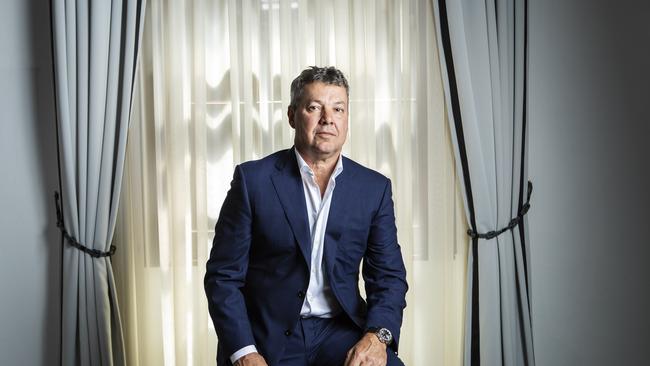
Still, with global interest rates headed to zero, some would question why BlueScope isn’t investing more for the long term.
Granted Vassella has just signed a cheque for circa $1 billion to expand capacity at his favourite steel plant, North Star in the US, by about 40 per cent.
Vassella was boss of the Port Kembla steel works back in 2011 when it was slated for closure before a landmark deal with its workers and some government handouts helped it survive.
At its peak Port Kembla employed 20,000 people, today it’s down to 3000 producing
two million tonnes of steel.
This is about the same capacity as North Star (pre-expansion) and it only employs 400 people and better still it produces just one product — hot rolled coil.
Port Kembla does everything from basic steel up to finished coated products.
When the Port Kembla recovery deal was reached the company refused to say whether it was a long-term proposition, wary of a new downturn which could destroy the economics. This may still happen but no-one is warning of an imminent closure any time soon which is undeniably good news.
BlueScope is still sitting on $1.4 billion in tax losses from those dark years which is one reason why it only pays a miserly eight cents a share in unfranked dividends and opted for a $250 million buyback instead.
North Star has two other advantages, it hides behind the Trump steel quota wall which means it is protected and its customers all live within three hundred miles of the plant.
Secondly, its energy costs are one third of those of Australia in part because the US opened the door to domestic gas supply while also, until recently, limiting exports.
From Vassella’s perspective, Australia’s energy policy fails because there are supply restrictions like the NSW and Victorian energy bans and an open door to LNG exports while there is a gas shortage on the east coast of the country.
Treasurer Josh Frydenberg is sitting on the latest ACCC report on east coast gas but it will no doubt bang the drum again on the need to lift supply restrictions.
Vassella confided that first-half earnings would be down some 45 per cent, which would have been obvious to anyone following the company, given iron ore and coal prices have been high and Australian steel prices under pressure.
But stating the obvious sent the company’s stock price down nine per cent to $11.11 a share.




When BlueScope Steel boss Mark Vassella was a lad, any company which trumpeted zero debt was sent to the sin bin for having a lazy balance sheet but today he makes no apologies saying “I’ve been through the bad years.”